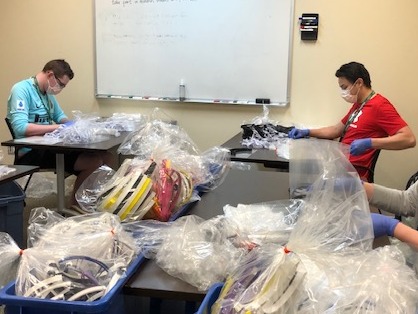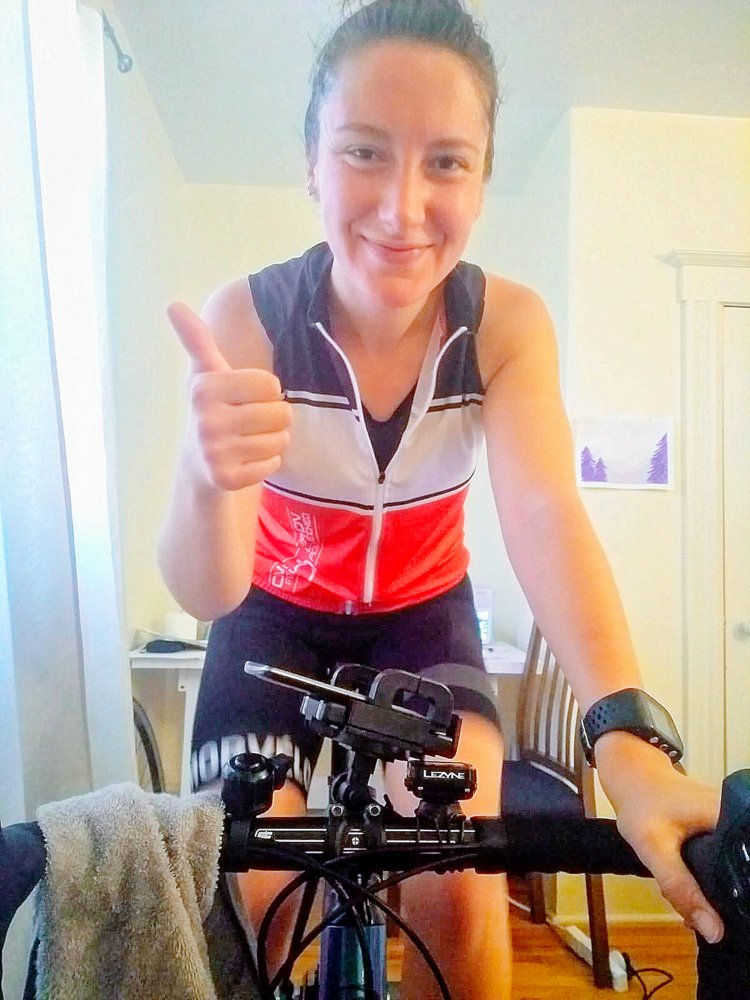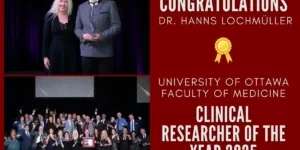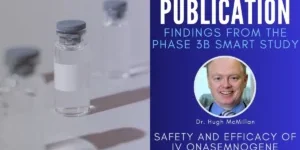The Lochmüller Lab on Lockdown
While the pandemic is still not over in Canada, and Ontario’s state of emergency will not be lifted before the end of June at the earliest, preparations are underway at the CHEO Research Institute to allow some research to restart in a carefully phased process over the coming weeks and months. After three months of working from home – a period that included the start of several new team members who have so far only met each other over Zoom! – Lochmüller Lab researchers can’t wait to get back to the bench. But we have certainly not been idle during this enforced absence from the lab. Papers have been written, datasets analysed, virtual conferences attended, online training courses passed, and many other non-work lockdown activities have been helping to inject some variety into our days. We are incredibly proud of the way the whole team has managed this challenging situation and grateful for the mutual support and encouragement that team members have given each other on our lab Slack workspace and Zoom calls. Keeping in touch virtually with such a supportive and friendly team has helped tremendously with the isolation that everyone feels in these times.
Three of our team members volunteered to write short summaries of some of the more interesting lockdown activities they have been involved in.
Jarred Lau and Stephen Holland: PPE projects to support frontline staff

Stephen and Jarred assembling face shields
The shortage of personal protective equipment (PPE) has made headlines around the world. Canada has thankfully not seen infection rates in healthcare workers at the levels some other countries have endured, and careful planning on the part of hospital staff has meant that PPE supplies have not run out at CHEO. However, strategy from early in the pandemic included the in-house production of face shields to provide an extra layer of protection for those on the front lines, and also planning for a worst-case scenario in which supplies of N95 masks, the most protective of the masking options for healthcare staff, ran out completely. While we are delighted this did not come to pass, it was great to be involved in two valuable PPE-related projects to support our frontline colleagues.
The first project, coordinated by Jessica Cojocari, has seen generous donations gathered from the Ottawa community to support CHEO families and staff. Throughout the pandemic, community members have been hard at work creating 3D printed face-shield frames and sewing cloth facemasks. The child-friendly cloth masks are intended for families to use at CHEO itself and in a community setting. They are reusable and are part of the #sewhelpful project at CHEO. Once these cloth facemasks are received from their makers, they are laundered and individually packaged for distribution among patient visitors to the hospital. The 3D-printed face-shield frames are assembled with laminate shielding and elastics so they can be packaged and made ready for use by hospital staff including emergency care nurses and doctors. Together with other RI students and staff, we have prepared thousands of cloth masks for distribution to our CHEO families and have assembled face-shields which are currently being used by hospital staff. More information about the sewhelpful project can be found at: https://cheofoundation.com/sewhelpful/ and information on how to 3D print face shield frames can be found at: https://ottawamakesppe.com/.
In the second project, Dr Dayre McNally and Katie O’Hearn led an initiative looking into possibilities for resterilizing used N95 masks. The current approach, termed ultraviolet germicidal irradiation (UVGI), is being tested for efficacy and its impact on overall mask integrity assessed. This required RI staff including students from the Lochmüller group to serve as test subjects for fit-testing of the resterilized masks. If the protocol is found to be effective, with the resterilized masks retaining the necessary levels of filtration, it would mean that these masks could be kept in reserve for use if new mask supplies do not meet demand.
Emily O’Connor: cycling Italy – virtually!

Emily cycling the Giro d’Italia – in her bedroom
As the Lochmüller lab entered week eight of lockdown, I was severely missing cycling across the Ottawa River into Gatineau Park – the cycling haven of the region – due to interprovincial travel restrictions. This meant I was stuck with the beautiful… but very flat… cycling terrain of the Ottawa Valley, which would not help with the cycling goals I had for the year. Having just moved to Canada in 2019, I had already become an avid indoor cyclist to survive the Ottawa winters. Slowly running out of motivation to continue riding indoors or the same loops round my neighbourhood, I heard about the creation of a virtual version of the Giro d’Italia, a huge event on the cycling calendar and yet another casualty of Covid-related event restrictions. This new virtual event – Our Giro – was created by the platform ‘Real Grand Tours’ and ‘The Cycling Podcast’, to give riders worldwide the opportunity to race a 21-day stage race from the comfort of their own homes. The very same day was stage 1, so I signed up, bought 3 (ginormous) boxes of granola bars and got ready to race!
The virtual races started in Hungary, where the real Giro d’Italia would have begun this year, then transitioned to Italy where the climbing began. A stage up Mt Etna had many of us wondering whether it was in fact a good idea for us mere mortals to take part in an event like this, but on we went for what would end up being another 11 mountain stages. There was a good amount of friendly conversation between riders, and a fair share of heckling for people not taking their turns riding on the front of the pack, or for lying about their weight (doping for virtual riding). I tended to hover somewhere between the middle of the pack to 8 km off the back (a bad day all round), but either way it was a fun experience. Things took a turn for the worse when Ottawa had a heatwave on week 2 and I discovered that I could not use my aircon while anything else in the house was plugged in. This allowed me to have a real Italian experience – cycling in 33-degree heat in my bedroom – but thankfully this also meant extra red wine was permitted post-cycling. One particularly warm day started with a 6.45am race, where, after some short internet dropouts, things were going well 2 hours into the ride and I had climbed up 1400 metres of the Mortirolo Pass. Then… just before an 18 km descent, disaster struck: my app crashed and I lost all race data. After many emails to tech support and lots of sympathy from friends, I got back on the bike after work to repeat the climb, only for the electricity to go off a few km in. Finally, at 9.30pm I was able to start the ‘cursed stage’ and finish it in 3 hours without further issues, and after eating half a box of granola bars fell into bed, thrilled at the prospect of another ride in 6 hours’ time.
Today (31st May 2020) was the final day of the tour, and I’m happy to say I was one of only four women (and 89 men) that finished all the stages. We only got points for completion rather than where we placed (phew), so technically I was also joint first! After 900km of riding and 20,000m of climbing, I can happily say that I’m very ready to ride outside again – hopefully soon with other members of the Lochmüller lab!







